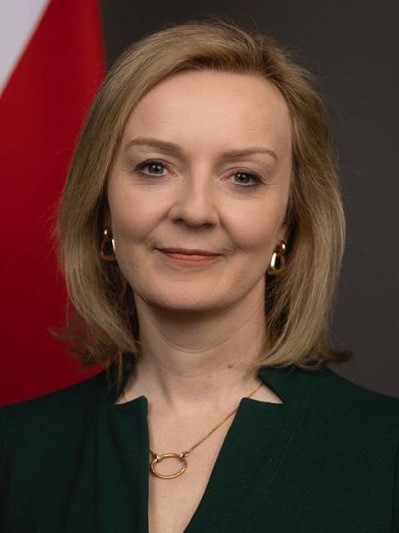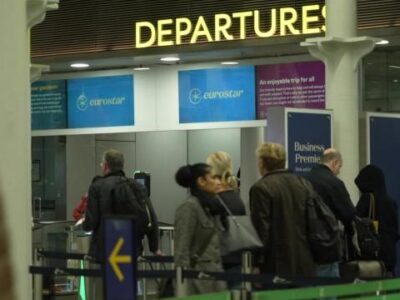Liz Truss has said a new law would be introduced to change the post-Brexit trade deal for Northern Ireland. The foreign secretary insisted the bill would be legal under international law. Boris Johnson’s government agreed on the trade deal – which governs how goods enter Northern Ireland from the rest of the UK – with the European Union in 2019 after the Brexit vote. But a row over its impact on trade has created a block to form a devolved government in Northern Ireland.
The Democratic Unionist Party (DUP) has refused to join the power-sharing administration until reforms are made to the deal, which it says treats Northern Ireland differently from the rest of the UK. In Parliament, Ms Truss said the proposed law would not scrap the deal but make limited changes, such as freeing the movement of UK-made goods from “unnecessary bureaucracy” and regulatory barriers.
But in response to Ms Truss’s statement, the EU said it would “need to respond with all measures at its disposal” if the UK went ahead with the legislation. Ireland’s foreign affairs minister, Simon Coveney, said the unilateral action from the UK was “damaging to trust”.
And Labour said the government should abide by the deal is signed, and work with the EU “to find practical solutions to these problems” rather than altering the deal unilaterally. The deal – known as the protocol – is a special arrangement that keeps Northern Ireland aligned with the EU single market for goods, avoiding a hard border with the Republic of Ireland.

Arrangement ensured free trade could continue across the Irish land border, which is a sensitive issue because of the history of conflict in Northern Ireland. But the protocol brought in some new checks on goods moving between Great Britain and Northern Ireland and has been criticised by unionist politicians since its introduction in 2021.
The DUP’s leader, Sir Jeffrey Donaldson, welcomed the UK government’s proposed legislation and said his party would take “cautious” steps to re-engage with power-sharing in Northern Ireland as it progresses. Ms Truss told MPs in response to “the grave situation in Northern Ireland”, that there was a “necessity to act to ensure institutions can be restored as soon as possible”.
She said the UK’s preference remained a negotiated solution with the EU in consultation with its negotiator Maros Sefcovic, who has been invited to London for more talks. If a resolution cannot be reached, the UK would take steps to “cement provisions” that are working in the protocol, while “fixing those elements that aren’t”.
“The government is clear that proceeding with our legislation is consistent with our obligations under international law,” she said. Elections to Northern Ireland’s Assembly on 5 May resulted in a majority for politicians who accept the protocol, including the new largest party, Sinn Féin. The party said the UK government was letting the DUP “hold society to ransom” after Mr Johnson met all political parties in Northern Ireland on Monday.
In a statement on Tuesday, Mr Sefcovic said the European Commission “stands ready to continue discussions with the UK government to identify joint solutions within the framework of the protocol”. “Should the UK decide to move ahead with a bill disapplying constitutive elements of the Protocol as announced today by the UK government, the EU will need to respond with all measures at its disposal,” Mr Sefcovic added. “Our overarching objective is to find joint solutions within the framework of the Protocol.”
![]()





